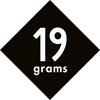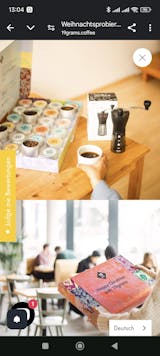Located between the continents of Asia and Europe, Turkey is at the cultural crossroads between East and West. The countries of Anatolia have long transported goods, ideas and people from Asia to Europe and vice versa. One of the most important goods that crossed the Bosphorus was coffee. Coffee entered the Ottoman Empire via Syrian traders from the 16th century and was brought to Europe by the subsequent invasion of Hungary, where it quickly spread throughout the continent. This naturally led to the development of its own unique coffee culture and vocabulary.
In this article, we will elaborate on the Turkish coffee tradition, as it is meeting with more and more interest in Specialty Coffee as well.
In Turkish coffee culture, people traditionally sit for a long time over coffee. It's a culture that's not so much about coffee-to-go, preferring small sips over a long period of time with the same coffee. It's less about coffee consumption and more about the community that forms around it. In Turkey, there is a saying that goes, "One cup of coffee is remembered for 40 years."
The most famous and world-renowned is commonly known as Turkish coffee, but is actually called Kahve (which comes from the Arabic Qahwah), and there are three different varieties: menengiç, dibek and mirra.
Kahve always prepared in a cezve. A cezve is a small pot with a long handle specially designed for preparing kahve. It is traditionally made of copper or brass, sometimes gold or silver. In modern times, it is also made of stainless steel, aluminum or ceramic.
Menengiç coffee is actually not made from coffee beans at all, but from the beans of the Pistacia terebinthus tree. Technically, this drink has no caffeine, but its fruity notes are enjoyed by many.
Dibek coffee is coffee that has been ground with a stone pestle in a stone mortar. It is not as dark or heavy as the usual Turkish coffees. It is thicker and has a creamier taste, generally resulting in a less intense cup of kahve.
Mirra literally means "bitter." This is a strong coffee with an intense flavor. The beans used for this coffee are generally roasted twice and not ground as finely as the other varieties. This gives it a much more bitter taste. Therefore, cardamom and other spices are often added to round out the coffee flavor a bit.
Turkish coffee is not prepared the way we think of it in the West, which means it's not really made with a machine. The method of preparation most closely resembles that of a mocha pot. Usually, cezve is cooked in one of three ways: on sand, on coals, or on ashes. Sand is the most traditional, and most households cook it on the stove.
Specialty Coffee is not as popular in Turkey as the traditional Kahve. The largest concentration of specialty coffee shops is in Istanbul, of which we would like to present our favorites here.
Probador Collectiva
Founded by Cagata Gulabioglu, the 2015-2017 SCA Turkey Roasting Champion, the café has a roastery, a training center, and serves as an excellent center for specialty coffee in Istanbul. It also supports smaller roasters by giving them access to high-quality machinery and fostering a collaborative environment.
Montag Coffee
Montag Coffee is located in Kadiköy, on the Asian side of Istanbul. Montag has been offering specialty coffee since 2015. They roast all of their own coffees and have multiple locations in Istanbul. They are one of the more exciting specialty coffee shops in Istanbul and have an excellent selection of coffee sources.
Petra Roasting Co.
Petra Roasting Co. was founded in 2013. They offer a unique coffee experience and work with local and global partners to cultivate a timeless coffee culture. Their main goal is to make quality coffee accessible everywhere. They work as suppliers for renowned venues and aim to offer handcrafted coffee in restaurants or at home. Petra Roasting Co. conducts thorough research to source seasonal green coffee with guaranteed taste and origin. With respect for the coffee's natural qualities, they roast it using reliable and innovative techniques, putting taste above brand name in their purchasing decisions.
Specialty coffee in Turkey is admittedly not quite at the level of Germany yet. But it's a growing trend, and the possibilities are endless. We're excited to see how it develops, and can't wait to revisit the scene in the future.
In the meantime, if you can't make it to Turkey, we recommend our Little Flower beans with an OTTO Turkish coffee brewer for a homemade mirra. They're not quite as bitter, but full of the warm, spicy notes that are typical of Mirra.




